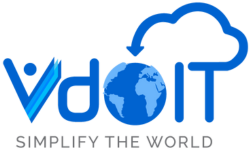MongoDB is a document-oriented, non-relational database management system. A document-oriented data model and a non-structured query language are used. It is one of the most efficient NoSQL frameworks, with tremendous scalability and versatility.
Having NoSQL means that it does not use the method of storing data in the form of rows and columns; instead, it is an architecture based on compilation and documentation, and the data stored in it follows the key-value pair scheme.
It also enables the documents to work with a wide range of data types. This database employs a document storage format known as BSON, which is built on JSON’s binary format.
All the solutions in MongoDB support the use of a JavaScript client for querying, while RDMS does not. One of the most appealing characteristics is that it is unaffected by SQL injection. Users really like it because of its speed, which is much faster than other databases and gives you a lot of versatility when it comes to changing schemas.
What is MongoDB Database Solutions (Include With Introduction)
MongoDB database solutions have become a critical component in modern data management due to their flexibility, scalability, and ease of use. As businesses and developers seek more efficient ways to handle unstructured and semi-structured data, MongoDB database solutions stand out as a top choice. Unlike traditional relational databases, MongoDB database solutions are designed to store data in flexible JSON-like documents, making it an ideal solution for applications that require a dynamic data model.
Features of MongoDB:
- Replication functionality: It has a replication feature that allows one to use the master slave scheme to keep several copies of data, which is useful in the event of device vulnerabilities.
- It integrates MapReduce and several aggregation tools that are both versatile and capable of dealing with a wide range of problems.
- GridFS: It aids in the reduction of our stack’s complexity by allowing us to divide a file into small chunks and then store each one as a separate document.
- Multiple servers: MongoDB’s database is distributed through multiple servers, allowing data to be replicated and used as a backup in the event of a failure.
MongoDB Atlas: A Fully Managed Cloud Solution (Add the Rest of the Content after Features of MongoDB)
One of the most popular MongoDB database solutions is MongoDB Atlas, a fully managed cloud-based database service. MongoDB Atlas simplifies the management of your MongoDB database solutions, offering automatic scaling, backup, and performance optimization. This makes it easier for businesses to focus on their core applications while leaving database management to MongoDB experts.
MongoDB Atlas enables businesses to scale their applications across multiple cloud platforms, including AWS, Google Cloud, and Microsoft Azure. The automated infrastructure of this MongoDB database solution handles everything from backups to performance tuning, allowing developers to focus on innovation rather than operations.
On-Premise MongoDB Solutions: Complete Control Over Your Data
For organizations that prefer to maintain control over their infrastructure, MongoDB database solutions also offer on-premise deployments. These on-premise MongoDB database solutions allow businesses to customize their database environment, ensuring that they meet specific regulatory and compliance standards.
Whether you’re using MongoDB Atlas or an on-premise deployment, MongoDB database solutions provide the scalability and performance needed to manage large datasets.
The on-premise version of MongoDB gives businesses full control over hardware, software, and network configurations, which is essential for industries with strict data security requirements. This makes on-premise MongoDB database solutions highly attractive for sectors like finance and government.
MongoDB Mobile: A Solution for Mobile and IoT Applications
In addition to cloud and on-premise options, MongoDB database solutions extend to mobile and IoT applications. MongoDB Mobile, one of the specialized MongoDB database solutions, allows developers to build offline-first applications that can sync with the cloud. This mobile-oriented MongoDB database solution ensures that your app functions smoothly even when there’s no internet connection.
MongoDB Mobile is a lightweight database that can run on mobile devices, enabling real-time syncing between the device and cloud databases. With the help of MongoDB Realm, data can be seamlessly synchronized once an internet connection is restored, making MongoDB Mobile one of the leading MongoDB database solutions for mobile app development.
MongoDB for Real-Time Analytics
One key advantage of MongoDB database solutions is their ability to handle real-time analytics. MongoDB’s architecture allows businesses to integrate MongoDB database solutions with popular business intelligence tools like Tableau and Power BI, making it easier to visualize and analyze large datasets. This makes MongoDB database solutions ideal for industries such as e-commerce, finance, and healthcare, where real-time data insights are crucial.
Real-time analytics enable businesses to make informed decisions based on up-to-the-minute data. By leveraging MongoDB database solutions, companies can run complex queries on massive datasets without sacrificing performance. This is especially useful in applications where customer behavior and operational data need to be analyzed instantly.
Security and Compliance in MongoDB Database Solutions
MongoDB database solutions are designed with built-in security features, including encryption, user authentication, and access control. Whether you’re deploying MongoDB Atlas or an on-premise solution, security is a cornerstone of MongoDB database solutions. These features make MongoDB database solutions suitable for industries that require stringent data protection, such as healthcare and finance.
MongoDB database solutions adhere to industry standards for data encryption, both at rest and in transit, ensuring that sensitive information remains protected. Additionally, access controls allow administrators to manage permissions for different users, adding another layer of security.
Flexibility and Schema Design
Another significant aspect of MongoDB database solutions is their flexibility when it comes to schema design. Traditional databases often require a fixed schema, but MongoDB database solutions allow you to change the schema dynamically as your application evolves.
This schema flexibility makes MongoDB database solutions a perfect fit for applications that handle complex or constantly changing data.
Developers can modify the data structure as needed without requiring downtime or major application overhauls. This dynamic schema capability is one of the reasons why MongoDB database solutions are preferred for agile development environments.
Global Distribution with MongoDB Database Solutions
The global distribution capabilities of MongoDB database solutions are another reason why businesses opt for them. With MongoDB Atlas, you can distribute your MongoDB database solutions across multiple geographic regions to improve performance and reduce latency for users worldwide. This makes MongoDB database solutions particularly useful for applications that serve a global user base, such as social media platforms or e-commerce websites.
By allowing data to be stored closer to the user, MongoDB database solutions reduce the time it takes for information to travel across the internet, resulting in faster load times and a better overall user experience.
ACID Transactions and Data Integrity
Moreover, MongoDB database solutions provide strong support for ACID transactions, which ensure data integrity across multiple operations. This feature of MongoDB database solutions is essential for applications in industries like banking, where consistency and reliability are non-negotiable.
ACID transactions ensure that even if a series of operations is interrupted (e.g., due to a system crash), the database will remain in a consistent state. This makes MongoDB database solutions reliable for mission-critical applications that need to handle multiple updates simultaneously.
Sharding and Horizontal Scalability
Sharding is another key feature of MongoDB database solutions, allowing you to partition large datasets into smaller, more manageable pieces. This ensures that your MongoDB database solutions remain efficient even as the volume of data increases. As data grows, MongoDB database solutions can be scaled horizontally by adding more servers to distribute the load.
Horizontal scalability ensures that businesses can expand their infrastructure without worrying about a single point of failure or performance bottlenecks. MongoDB’s sharding feature enables businesses to scale dynamically, keeping up with the demands of ever-growing data volumes.
Use Cases for MongoDB Database Solutions
MongoDB database solutions are highly versatile and can be applied across a wide range of industries:
1. E-Commerce: MongoDB database solutions are used in online retail platforms for managing large catalogs, handling real-time customer interactions, and personalizing user experiences.
2. Healthcare: Medical institutions use MongoDB database solutions to store unstructured data like patient records, medical images, and clinical notes. MongoDB’s document-based model is ideal for handling this kind of data.
3. Gaming: MongoDB database solutions are widely used in gaming applications for managing user profiles, storing game progress, and supporting real-time multiplayer interactions.
4. Financial Services Financial institutions use MongoDB database solutions to manage transaction data, customer information, and real-time analytics, making it easier to deliver personalized services.
Why MongoDB is Still Important
MongoDB database solutions are highly versatile and can be adapted to a wide variety of use cases. From cloud-managed services like MongoDB Atlas to on-premise and mobile-specific options, MongoDB database solutions offer the flexibility, scalability, and security needed to meet the demands of modern applications.
Whether you’re dealing with real-time analytics, mobile app development, or handling large datasets, MongoDB database solutions provide the tools you need to succeed in today’s data-driven world. By incorporating MongoDB database solutions into your data strategy, you ensure that your applications remain scalable, reliable, and capable of handling the challenges of tomorrow.
vDoIT will assist businesses with any MongoDB-related needs. Anything from the application code, prototype, design, and implementation to application deployment within your framework is covered. Our team can assist clients with a variety of tasks, including schema design, application design, business scaling, benchmarking, query optimization, and more.
We also provide MongoDB consulting and strategy services in addition to growth. We can not only customize the platform to your specifications, but we can also provide strategy and advice on how to make it work best for you.
FAQs
Which database is best for MongoDB?
MongoDB *is* a database, designed for high-performance, scalable NoSQL operations, ideal for handling large unstructured datasets.
What database does MongoDB use?
MongoDB uses its own database engine, built around a flexible schema structure using BSON (binary JSON), ideal for document storage.
Is MongoDB better than SQL?
MongoDB excels at handling unstructured data, but SQL is better for structured data and complex queries; the choice depends on your use case.
Can MongoDB handle transactions?
Yes, since version 4.0, MongoDB supports multi-document ACID transactions, making it suitable for critical operations.
Is MongoDB suitable for large-scale applications?
Yes, MongoDB is designed for horizontal scalability, making it a strong choice for applications with high data loads and fast read/write operations

